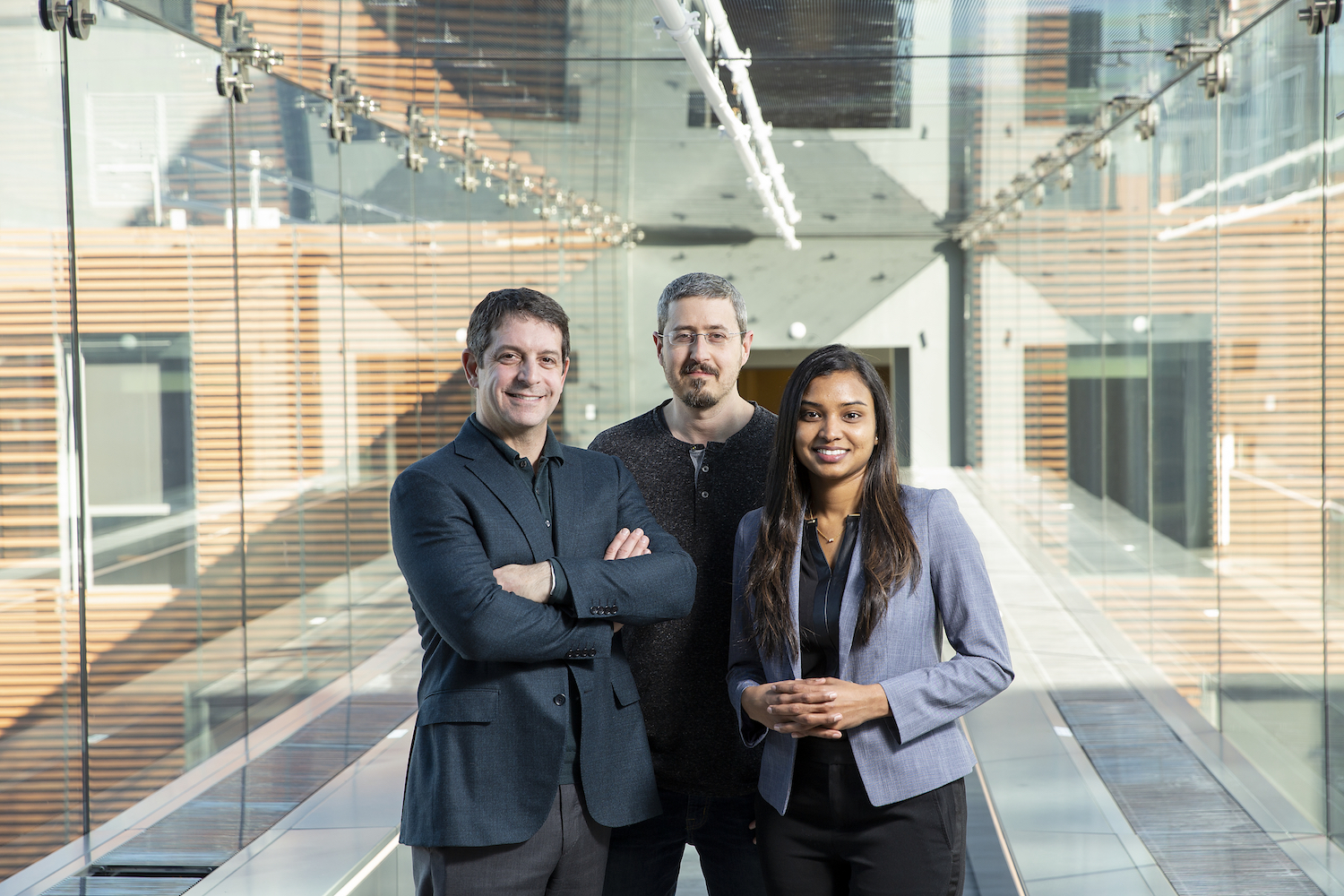Daniel Isaacs, legal studies professor, Avner Ronen, civil and environmental engineering assistant professor and Vidya Sabbella, a current MBA student
By Joseph V. Labolito
The Fox School is focused on making a positive impact on its students, community and the global business world. This focus can be seen as a through line across much of the school’s research, including the current interdisciplinary industrial ecology project by Daniel Isaacs, legal studies professor, Avner Ronen, civil and environmental engineering assistant professor and Vidya Sabbella, a current MBA student.
The project works to address a combination of interconnected desired outcomes that are global in scale and go beyond creating a sustainable supply of lithium. A primary goal of the team is to illustrate a practical application of industrial ecology for business systems in order to reduce wastes and serve as a basis for innovation and intergenerational justice.
“Business, technology, science and education should not be siloed. With broader educational opportunities like this one, environmental issues can be the drivers of innovation,” says Isaacs. “Students and leaders alike need to start thinking about business in terms of what their obligations to future generations should be.”
The Interdisciplinary Dream Team
Dan Isaacs, director of the Global MBA program, teaches business ethics, sustainability in business, corporate governance and more at the undergraduate and graduate levels. His research seeks to align economic incentives with ethical behavior.

By Joseph V. Labolito
Dr. Avner Ronen is an assistant professor in the Department of Civil and Environmental Engineering at Temple University. His research interests include water and wastewater treatment, membrane separation process, nutrient recovery from wastewater and more.
Vidya Sabbella is currently pursuing an MBA in health sector management. She spent the majority of her career working as a pharmacist in India. When she moved to the U.S. and spent time volunteering at local hospitals, she became determined to pursue a career where she could help ensure efficient management practices for healthcare institutions.
They are working together in order to uncover whether or not the use of desalination, or the process that takes away mineral components from saline water, can replace traditional, more environmentally impactful methods of extracting lithium. This collaboration of business and science sets a new standard for how business schools can think about the future of the industry and the role that sustainability can play within it.
The Role of Lithium in the Modern World
Lithium is and will continue to be an invaluable resource for the U.S. and beyond. According to sources such a Mining.com and Bloomberg, lithium demand is expected to increase by 650% by 2027 from companies that produce batteries to power electric cars, laptops and other high-tech devices.
But why should society rethink the ways it is currently extracting lithium? Traditional lithium extraction methods have significant environmental impacts, such as water pollution and depletion, soil damage and air contamination. In contrast, lithium recovery from seawater has a negligible impact and uses naturally occurring resources. It also makes good business sense, as it would be more cost effective and energy-efficient for organizations that use lithium as part of their manufacturing processes.
Where Chemistry and Market Research Meet
If Ronen and Sabbella’s work on the chemistry side of the project is successful, the team will have created a new, sustainable method of extracting a resource whose value will only increase over time.
From there, Dan Isaacs and the Fox School will assist with the business side of the project, helping to commercialize lithium desalination. Together, Isaacs and Sabbella will conduct market analysis and develop a business plan.
The exercise presents a unique opportunity for Sabbella to combine her scientific past with her future in business. “Being a pharmacist and MBA candidate, I believe this is a perfect blend of my background qualifications and experience and my future as MBA graduate,” Sabbella says. “It’s a great opportunity to apply the concepts that I am learning every day at the Fox School to develop a business model. By working in the lab, I have a chance to utilize my chemistry knowledge.”
This story was originally published in Fox Focus, the Fox School’s alumni magazine.

